It's Greece, 2014, mid-spring. We're anchored off the island of Lesbos. I'm leading a sailing expedition with my co-instructor and six eager students. The weather forecast shows winds no more than 30 knots—a challenging day ahead, but manageable for our planned 40-mile journey south to Chios.
Halfway there, everything changes. The wind swings around, suddenly warm, howling from the south and building to over 50 knots. What should have been a 7-hour sail stretches into twelve gruelling hours. Four maydays are called that day alone. As skipper, I feel the weight of responsibility for every soul aboard. There are no excuses, no one else to blame if things go wrong. I am accountable, full stop.

When we finally reach harbour late at night, I kiss the land beneath my feet. That day taught me more about respect for nature, gratitude for life, and personal responsibility than years of classroom learning ever could.
I'm sharing this story because it captures something essential about why I founded Sailing Virgins. It's not just about teaching people to sail—it's about those raw, transformative moments when nature strips away our pretences and reconnects us with something elemental within ourselves. There's something visceral about being thrust forward by the wind and carried by the waves that wakes us up in ways our comfortable, climate-controlled lives rarely do.
The Science of Feeling Alive: Nature and Vitality
In my work with Scratchie (my newer venture bringing Self-Determination Theory to workplaces), I've been diving deep into research on what makes humans flourish. One finding keeps surfacing: meaningful exposure to nature profoundly affects our psychological vitality.
When I first read Deci and Ryan's research on this, it crystallised what I'd observed countless times on sailing expeditions. They called it "subjective vitality"—that feeling of being alive, energised and purposeful. It's not just about happiness; it's about feeling fully awake to life.
What fascinates me is that this effect isn't just poetic—it's measurable. Recent studies show that time in nature, particularly in marine environments, increases subjective vitality by measurable amounts compared to urban settings. The effect is even stronger on water, with ocean and lake environments showing a greater boost to our sense of aliveness (I have been given percentages but hate quoting them as this is people we're talking about and it just seems a bit like pseudo-science when numbers are introduced).
I see this transformation in people's faces after a few days on one of our sailing adventures. Something shifts. The artificial boundaries between themselves and the world begin to dissolve. Their eyes look clearer, postures straighten, and conversations deepen. They're accessing something essential that our modern lives often cut us off from.

Why Sailing Hits Differently: Freedom, Mastery, and Connection
What makes sailing such a powerful way to reconnect with nature and ourselves? The answer lies in how it satisfies our core psychological needs:
Finding Freedom at the Helm
There's a particular kind of autonomy that comes with sailing—what researchers call "structured autonomy." You're making real choices that have immediate consequences, but within the honest framework of wind, water, and physics.
I remember watching a stressed-out tech executive transform over just three days in the Caribbean. On land, her phone constantly demanded attention, her schedule was dictated by others, and her autonomy was an illusion. But at the helm of our 40-foot monohull the wonderful boat "Libertas", making decisions about our course as we approached the dramatic Pitons of St. Lucia, something changed. "I feel like I'm actually steering my own life again," she told me.
That's not poetry—it's psychology. Research shows sailors report higher autonomy satisfaction compared to their everyday lives. The decisions you make matter, the responsibility is real, and the freedom is tangible.
The Quiet Pride of Competence
I've watched hundreds of beginners experience that first moment when they truly understand how to trim sails to the wind. There's a quiet pride that comes with it—a sense of genuine capability.
Sailing creates what psychologists call "visible cause-and-effect relationships." You adjust the sheet, the sail changes shape, and the boat responds immediately. The feedback loop is clear and undeniable.
This matters because competence satisfaction runs deeper than simply being good at something. It connects us to our evolutionary history as humans who needed to master skills to survive. When you manage to anchor safely in a tricky cove or navigate through challenging weather, you're engaging with competence satisfaction in its purest form.

Connected in the Crucible
Perhaps the most surprising psychological benefit of sailing adventures is how they foster deep human connection. There's something about facing challenges together on a boat that accelerates trust and openness.
I'll never forget climbing Petit Piton in St Vincent with a crew who'd been strangers just days before. Breathing hard, supporting each other up the steep trail, reaching the summit together and seeing the Caribbean stretched out below us. By the time we descended, something had shifted in how we related to each other.
Research backs this up, for instance in Self Dermination Theory (p. 266 actually: this thing remains close as I work my way through the book) it shows groups doing adventures report stronger relatedness satisfaction than control activities. There's a term for this—"interdependent autonomy"—being independently capable while fundamentally connected to others.
The Science Behind That Alive Feeling
What's actually happening in our minds and bodies when we're out on the water? The research points to several key mechanisms:
The "soft fascination" of water movement allows our directed attention to rest and recover. Unlike the harsh stimuli of urban environments that demand our focus, water captures attention without depleting our mental resources.
The vastness of the ocean triggers awe—that feeling of being small in the presence of something immense. This emotion correlates strongly with increased vitality and well-being.
There's also the sensory richness of marine environments—the negative air ions in sea spray, the full-spectrum natural light, the sounds of water and wind, and the gentle movement beneath you. These combine to activate restorative physiological responses that quite literally make us feel more alive.
I witnessed this dramatically when sailing around Bora Bora in French Polynesia. One morning, our group rose before dawn and trekked four hours through jungle to reach the island's summit. Standing there, looking out over the vast Pacific, one participant—a normally reserved financial analyst—had tears streaming down his face. "I feel connected to everything," he said simply.
This wasn't an isolated incident.

Small Steps Toward Vitality
Not everyone can drop everything and join a sailing expedition (though I'd obviously love it if you did!). But everyone can benefit from more intentional connection with nature.
What I've learned from both the research and watching hundreds of people transform through adventure is that consistency matters more than intensity. James Clear got it right in Atomic Habits when he emphasised small, sustainable changes.
Consider creating a tiny daily ritual that connects you with the natural world:
- Start by spending just three minutes watching the movement of clouds or trees
- Feel the texture of natural materials—wood, stone, running water
- Take ten deep breaths outside, remembering that the air you breathe connects you to all living things
- Try the mantra of "thank you" as you breath in and "thank you" as you breath out
I sometimes wonder if the ancient focus on breath that appears in so many wisdom traditions is partly about remembering this profound connection. When we breathe in, we're taking in molecules that have cycled through countless living beings. When we breathe out, we're feeding the trees and plants. We're all joined, briefly-living nodes of the same system.
In our society of concrete, steel and endless convenience, this sense of connection with nature needs to be deliberately fostered. But even small doses can begin to restore what's been lost.
From Theory to Life
I didn't found Sailing Virgins to sell sailing holidays. I created it because I genuinely believe that adventure in nature creates transformation—the kind that endures long after you've returned to land.
Whether you join one of our adventures or find your own path to nature connection, what matters is taking the first step. The research is clear: our psychological vitality depends on meaningful contact with the natural world.
I'd love to hear how you build nature connection into your life, no matter how small. What practices help you feel more alive? The journey looks different for each of us, but the destination—that feeling of genuine vitality—remains the same.
Also I'm happy to share the pages from Self Determination Theory that inspired this blog post, just leave a comment and we'll send it. If enough people ask for it we can make it a downloadable thing.
Until next time, may you find your own path to feeling fully alive.
James Founder, Sailing Virgins & Co-founder, Scratchie

